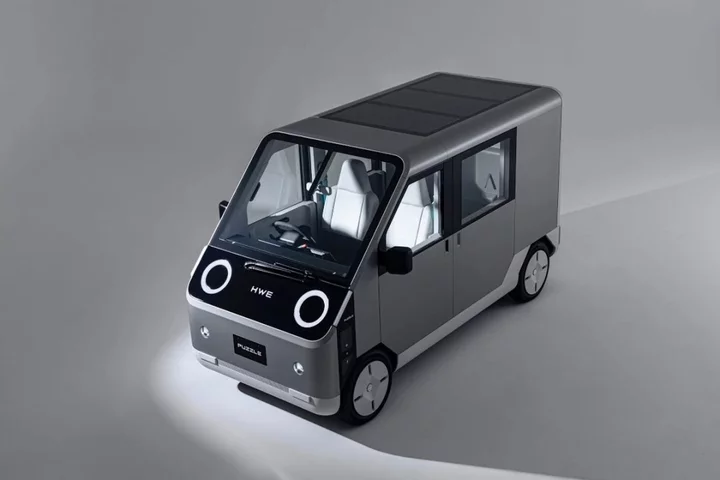
Tiny solar-powered van unveiled in Japan
A Japanese automaker has unveiled an electric van that uses rooftop solar panels to charge its battery. The Puzzle van, built by HW Electro, is designed to be disaster resilient, capable of functioning during periods of prolonged power outages, however its small size and limited power output means many everyday users could operate it without ever needing to plug it in. The pint-sized van comes with three photovoltaic panels, emergency outlets, an inbuilt first aid kit, WiFi internet connectivity, and a crowbar. HW Electro said the puzzle-inspired design allows its components to fit together in a cost-effective way, making it suitable for “emergencies and for daily convenience” alike. The Puzzle is a type of ‘kei car’, which are smaller and lighter than regular vehicles in order to attain tax and insurance benefits within Japanese regulations. For the first time, HW Electro will be selling a kei car in the US, with commercial sales set to begin in 2025. “The Puzzle launch marks HW Electro’s dedication to addressing environmental challenges and creating innovative eco-friendly solutions to the commercial vehicle market,” HW Electro President Hsiao Weicheng said at the van’s unveiling. “We are excited to officially showcase Puzzle today and we look forward to making it available in the US market.” HW Electro is yet to reveal details about the price or top speed, though its form and functionality could meet a growing demand in the US for small electric vehicles. Areas like Arizona and Florida are increasingly seeing families using electric golf carts as a “second car”, capable of making short trips within a town. Some states are even adapting laws to allow small electric vehicles with limited top speeds to be driven on public roads, according to Electrek. “As the trend continues to grow, it promises not just a transformation of our local communities, but also a greener and more sustainable future for all,” the publication noted in August.
2023-11-22 23:46
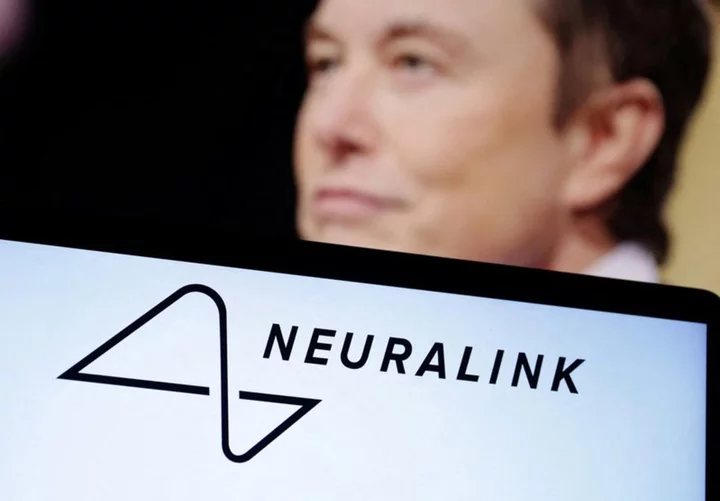
US lawmakers ask SEC to scrutinize Musk comments on Neuralink
By Marisa Taylor Four U.S. lawmakers have asked the Securities and Exchange Commission to investigate whether Elon Musk
2023-11-22 23:28
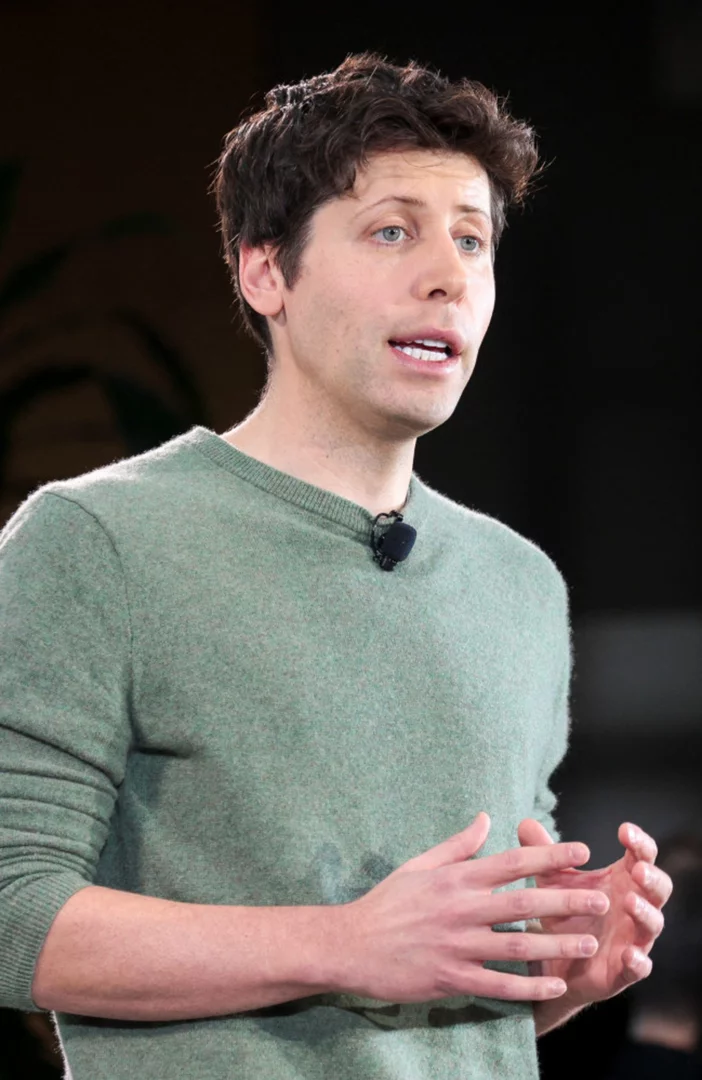
Sam Altman returns to OpenAI days after being fired
Sam Altman has been reinstated as the boss of OpenAI after the company's employees threaten to resign.
2023-11-22 23:26
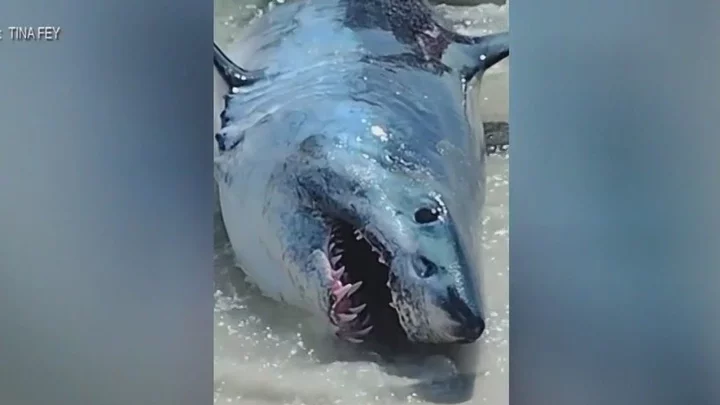
Great white sharks keep entering the twilight zone and experts are mystified
Great white sharks are displaying unprecedented behaviours, and experts can’t explain why. One of the ocean’s greatest apex predators has been entering the twilight zone way beneath the surface of the ocean, and far beneath the areas they normally feed in. The twilight zone, also referred to as the mesopelagic zone, is the area 200 to 1,000 metres down below the surface which is at least partly permeated by sunlight. The midnight zone, meanwhile, is found 1,000 to 3,000 metres down and is impenetrable to sunlight. Now, a new study published in the journal PNAS offered insight into the behaviours of 344 tagged predatory fish including great white sharks. Scientists would usually expect the creatures studied to dive to the deep scattering layer (DSL), which is full of small fish and other ocean life forms and therefore attracts more predators than other levels. However, there was also evidence that suggested predators dove down far deeper than the DSL, and scientists don’t know why. According to the research, great white sharks dive down to as deep as 1,128 metres. Camrin Braun is assistant scientist at the Woods Hole Oceanographic Institution and study lead. Braun told Live Science: "How, when, where they access the deep ocean certainly varies, but the clear anecdotal answer is that the deep ocean seems like an important habitat regardless of the predator species. It's clear there are good reasons for these animals to dive deep, otherwise why would they all do it? "There's good evidence for some species/situations in which diving deep is clearly for foraging," Braun added. "So that supported our expectation. However, we also find several cases where we can pretty definitively say the use of the deep ocean is not for feeding – or if it is it represents a totally different kind of predator-prey interaction or mysterious prey resource." The study could suggest that the twilight zone could be far more important to great white sharks and other predatory fish than previously thought. "If it turns out that there is indeed more biomass in the twilight zone than in all current marine capture fisheries combined then it's possible to imagine a kind of mesopelagic 'gold rush' to catch and use this biomass," Braun said. "There are many 'ifs' in this chain and many issues in making mesopelagic fishing feasible but it seems that biomass may be important for predators. Therefore, we really need to better quantify those links between predators and mesopelagic biomass before we can sustainably harvest/use those resources.” Sign up for our free Indy100 weekly newsletter How to join the indy100's free WhatsApp channel Have your say in our news democracy. Click the upvote icon at the top of the page to help raise this article through the indy100 rankings
2023-11-22 23:26
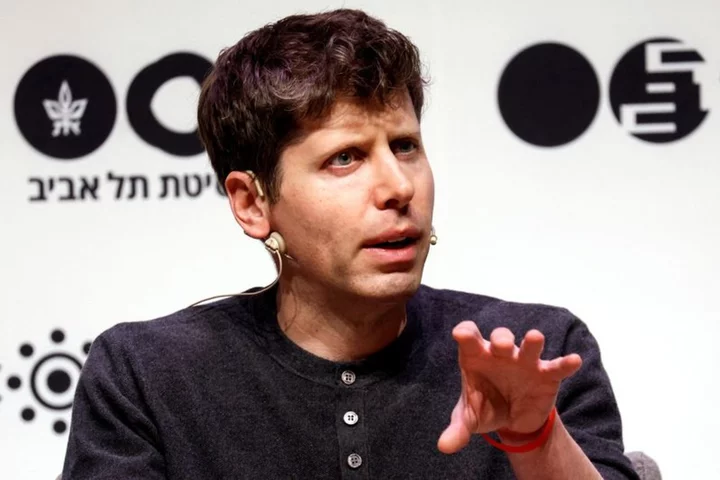
Reaction to Sam Altman's return as OpenAI CEO
OpenAI said on Tuesday it had reached an agreement for Sam Altman to return as CEO days after
2023-11-22 23:25

ECB Should Consider Greening Public Bond Holdings, Elderson Says
The European Central Bank should consider tweaking the composition of its public-sector bond holdings to mirror the European
2023-11-22 23:22

Should You Tip Your Mail Carrier During the Holidays?
You can, but the USPS actually prefers that you don’t. Here’s why.
2023-11-22 22:26

Democrats accuse Elon Musk and X of profiting from Hamas propaganda
A group of nearly 30 House Democrats has accused Elon Musk and X of profiting from Hamas propaganda. The group, led by Reps Jamie Raskin and Dan Goldman, sent a letter to Mr Musk and X CEO Linda Yaccarino on Tuesday accusing the company of not following its own policies regarding “violent and hateful entities,” which prohibits promotion of terrorist organizations and propaganda and states the platform works to remove such violations. The letter outlined reports from non-profit research groups that showed X accounts sharing “uncensored videos depicting the desecration of corpses”. The lawmakers said such content was being spread in “the darkest corners” of the platform through hashtags used by people monitoring updates about the Israel-Hamas war. They added that the posts and accounts “were allowed to remain live for days after their policy violations had been publicized”. The group went on to accuse X of profiting off the back of the “Hamas propaganda” being shared, “through monthly subscription fees collected from some propaganda spreaders” and “ads displayed in replies to posts by both Premium and regular accounts”. This, the lawmakers said, is “indefensible”. The lawmakers concluded by asking Mr Musk and Ms Yaccarino to “uphold your public commitments and enforce your policies”. They also asked the pair to provide “all forms of written communications … relating to content moderation for any posts or accounts associated with, related to, or connected to Hamas”. X did not immediately returnThe Independent‘s request for comment. However, the same day that the letter was sent, Mr Musk announced plans to donate all revenue the social media platform generates from advertising and subscriptions linked to the war to hospitals in Israel and the Red Cross in Gaza. “X Corp will be donating all revenue from advertising & subscriptions associated with the war in Gaza to hospitals in Israel and the Red Cross/Crescent in Gaza,” he posted on X. The condemnation from House Democrats marks just the latest development in the growing antisemitism row encircling Mr Musk and the social media platform. Since Mr Musk’s $44bn acquisition of X closed last year, he has relaxed moderation policies on the platform and cut many staff involved with moderating content. In recent months, Mr Musk has come under fire on multiple occasions over content promoting antisemitism on the site. Mr Musk has also sparked outrage over his own peronal posts and comments which have promoted antisemitic content. Last week, the self-described “free-speech absolutist” said a post which promoted an antisemitic theory was “the actual truth”. A social media user had appeared to push the “great replacement” conspiracy theory on X, claiming that Jewish communities “have been pushing the exact kind of dialectical hatred against whites that they claim to want people to stop using against them”. “I’m deeply disinterested in giving the tiniest s*** now about Western Jewish populations coming to the disturbing realisation that those hordes of minorities that support flooding their country don’t exactly like them too much. You want truth said to your face, there it is,” the post added. Mr Musk responded by writing: “You have said the actual truth.” His response received praise from white nationalist Nick Fuentes – while prompting widespread backlash from dozens more, including the White House, with many accusing him of antisemitism. He later responded to the accusations of antisemitism, insisting “nothing could be further from the truth”. “This past week, there were hundreds of bogus media stories claiming that I am antisemitic. Nothing could be further from the truth,” he wrote. “I wish only the best for humanity and a prosperous and exciting future for all.” Days later, left-wing non-profit organisation Media Matters published a report revealing that adverts from big brands including IBM, Apple, Oracle and Bravo were running next to pro-Hitler and antisemitic content on Mr Musk’s social media platform. The revelation prompted a series of major companies – including Disney, Apple and IBM – to pull advertising from X. On Monday, Mr Musk responded by filing a “thermonuclear lawsuit” against Media Matters. He and other X executives denied the accusations in the report, saying that the research strategy used by the non-profit to uncover the content placed next to company adverts was not representative of how regular people use its platform. The organisation had followed accounts that posted the content, then refreshed the X timeline until adverts appeared, X executive Joe Benarroch said. Meanwhile, an X spokesperson told The Independent the company did not intentionally place the adverts next to the posts from the antisemitic accounts, which have now been demonetised, meaning advertising can no longer run on their profiles. However, the accounts have not been removed. Media Matters president Angelo Carusone issued a statement on Monday addressing Mr Musk’s campaign against the organisation, calling the lawsuit “meritless” and “an attempt to silence reporting that he even confirmed is accurate”. “Musk admitted the ads at issue ran alongside the pro-Nazi content we identified. If he does sue us, we will win,” the non-profit said. This came after an earlier scandal in the days after the 7 October Hamas attacks on Israel, where Mr Musk was forced to delete a post in which he amplified an account widely accused of antisemitism and promoted debunked videos as reliable sources of information about the attack. Last year, advocacy organisation the American Jewish Committee called on Mr Musk to apologise over a controversial post that made a satirical comparison between Canadian Prime Minister Justin Trudeau and Adolf Hitler. Mr Musk has previously insisted that he is “pro free speech” but against antisemitism “of any kind”. Read More Elon Musk amplifies Pizzagate conspiracy theory Biden joins rival Threads after Musk’s ‘unacceptable’ response to antisemitism on X Musk files defamation suit against Media Matters over Nazi X post claims Elon Musk and Trump aide want journalists jailed over X Hitler exposé Elon Musk insists he’s not antisemitic after sharing antisemitic post SpaceX Starship rocket loses contact after reaching space: Live updates
2023-11-22 22:25
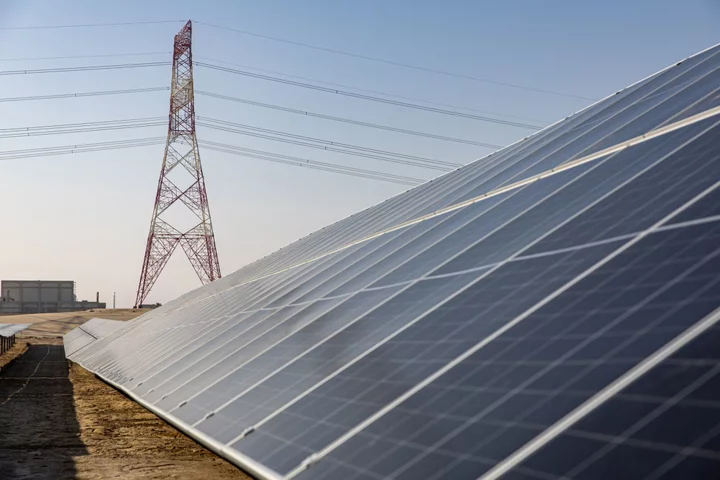
UAE Plans to Build More Solar Power, Batteries in Green Push
The United Arab Emirates will add more solar power plants and battery storage sites in the oil-rich nation’s
2023-11-22 21:51
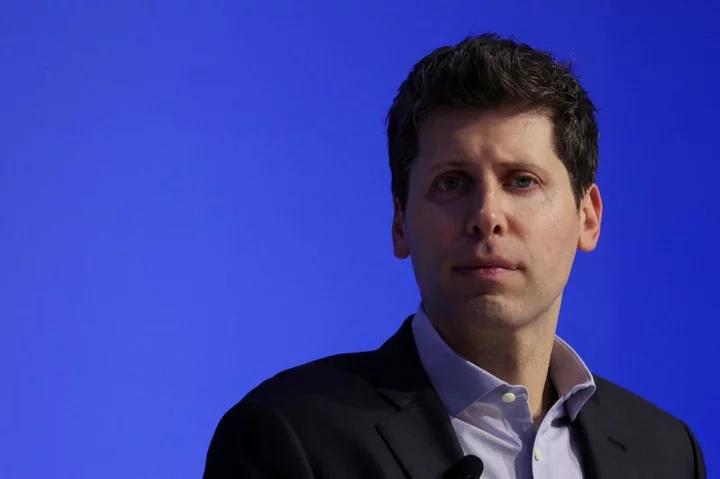
Sam Altman to return as OpenAI CEO after his tumultuous ouster
By Jeffrey Dastin and Aditya Soni SAN FRANCISCO (Reuters) -Sam Altman is returning as CEO of OpenAI just days after
2023-11-22 21:21
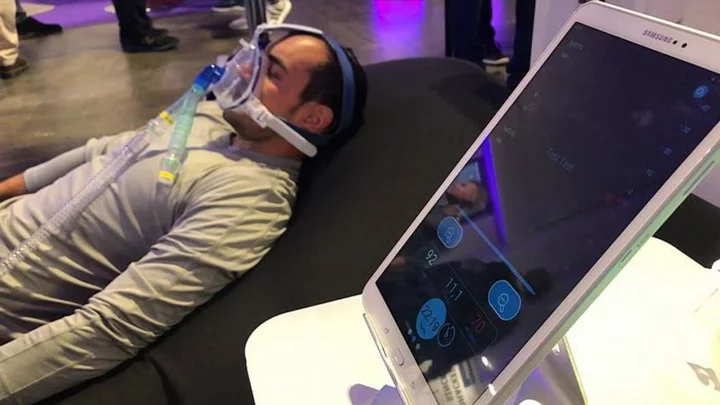
What is biohacking – the latest wellness trend taking over TikTok?
Biohacking is the latest wellness trend taking the internet by storm, with TikTok witnessing a staggering 316 per cent increase in searches. More notably, Bryan Johnson, the founder of KernelCo and Blueprint, has contributed to the intrigue after investing approximately $2 million per year to reduce his biological age. The 46-year-old tech tycoon recently made headlines for tracking his nighttime erections, in an attempt to reach the level of an 18-year-old. How exactly does he do that, you may ask? Well... He gives himself electric shocks in his private area. Johnson told Steven Bartlett on The Diary of a CEO podcast that nighttime erections "are actually a meaningful health indicator" because they "represent psychological health, cardiological health." While that's one extreme measure of biohacking, there are other methods behind the trend. A spokesperson for Snusboss said: "Biohacking refers to the practice of making changes to one’s biology, typically through self-experimentation and the use of technology, to enhance physical and cognitive abilities, optimize health, and achieve personal goals." “Currently #biohacking has 791 million views on TikTok, and continues to gain popularity, particularly with Millennials and Generation Z who are becoming more interested in the scientific research behind their health and wellbeing and are also open to experimenting with new techniques," he continued. Biohacking is essentially an unconventional experimental biotechnology that is believed to help improve overwell wellbeing. Here are several ways people are implementing into their lives: Ice cold plunge "Cold plunging is an aspect of cold-water therapy or cold-water immersion, which involves immersing oneself in cold water temperatures. "It is recommended to complete 11 minutes of cold-water exposure per week, which can be broken into three minutes per session. "Studies suggest 50 to 59 degrees Fahrenheit (10 to 15 degrees Celsius) to be an optimal temperature range for cold plunges focused on reducing muscle soreness. "Doing this will also help to reduce inflammation, improve circulation, and enhance recovery after exercise. It is also shown to boost the immune system, improve sleep quality and help with stress management." Optimise your sleep "If you are getting around seven to nine hours of sleep a night, you will encourage muscle growth and repair, help keep your brain alert, improve your blood sugar levels and even enhance your lifespan. "Whilst there are several tips on social media such as eating certain fruits before bed, avoiding electronic devices and avoiding alcohol, one of the most important rules of optimizing sleep is maintaining a good circadian rhythm. "This means going to bed and waking up at the same time every day, even on weekends. To do so, try maintaining a routine and try to spend time outdoors during daylight, especially in the morning. This is because natural light exposure helps regulate your body's internal clock and promotes alertness during the day. "To measure progress, you can use devices such as smartwatches that track sleep duration and quality." Regular saunas "Saunas, small rooms heated with hot air or steam, are said to have cardiovascular health benefits. "When exposed to high temperatures, the body then works to cool itself down by increasing heart rate, blood flow, and cardiac output. This is known to decrease blood pressure, leading to benefits for cardiovascular health and longevity. "For best results from this biohack, choose a temperature between 175-195F (80-90C) with 10-20 per cent humidity for 30 minutes at least three times a week." Himalayan salt in water "Electrolyte levels are important for the body to function properly. They help to balance the amount of water in your body, balance your acid/base (pH) levels and move nutrients into your cells. "Your body makes electrolytes naturally, as well as obtaining them from food, drinks and supplements. "However, if your levels drop, mineral-rich Himalayan salt contains lots of electrolytes and is proven to help detox the body, supporting kidney and liver functions. "Therefore, around one teaspoon of Himalayan salt added to one litre of water is recommended per day. "Not only will it keep you feeling energised, but also help to boost your metabolism." Moderate coffee intake "Low to moderate doses of caffeine (50–300 mg) are scientifically proven to cause increased alertness, energy, and ability to concentrate. "Science also suggests drinking two cups of coffee a day could help ward off heart failure when a weakened heart has difficulty pumping enough blood to the body. "Both regular and decaf coffee have a protective effect on the liver. Research shows that coffee drinkers are more likely to have liver enzyme levels within a healthy range than people who don’t drink coffee. "Experts say it is healthy to drink a maximum of 2.5 cups of coffee per day." Breathwork "We breathe every single day, but we often don’t even think about how we are breathing. "In times of stress, our breath automatically responds by shortening and speeding up and this can cause further strain on the body. "With breathwork practice, the body can be trained to automatically control breathing and utilize it as a calming tool during times of stress. "Breathing also directly affects how much oxygen our cells are getting, so when we deepen and slow down the breath from its usual pattern, we allow more oxygen to enter each cell. "To practice breathwork, inhale for 4 seconds and exhale for 6 seconds. Repeat this for around 10 minutes per session. For best results, do this once in the morning and once in the evening." Red Light Therapy (RLT) "Red light therapy (RLT) is a popular method used to optimize overall skin health. RLT also helps to boost muscle recovery, reduce pain and inflammation, support nervous system health, and generally increase energy levels. "For those who experience inflammation and pain with Achilles tendinitis, and have signs of skin ageing and skin damage, research shows RLT may smooth your skin and help with wrinkles. RLT is also known to help with acne scars, burns, and signs of UV sun damage. "To complete the treatment, lie in a full-body LED red light bed or pod or be treated by a professional with a device that's outfitted with panels of red lights. "Professionals recommend trying red light therapy three times per week for 10 minutes each time for a minimum of one month." How to join the indy100's free WhatsApp channel Sign up for our free Indy100 weekly newsletter Have your say in our news democracy. Click the upvote icon at the top of the page to help raise this article through the indy100 rankings.
2023-11-22 20:19
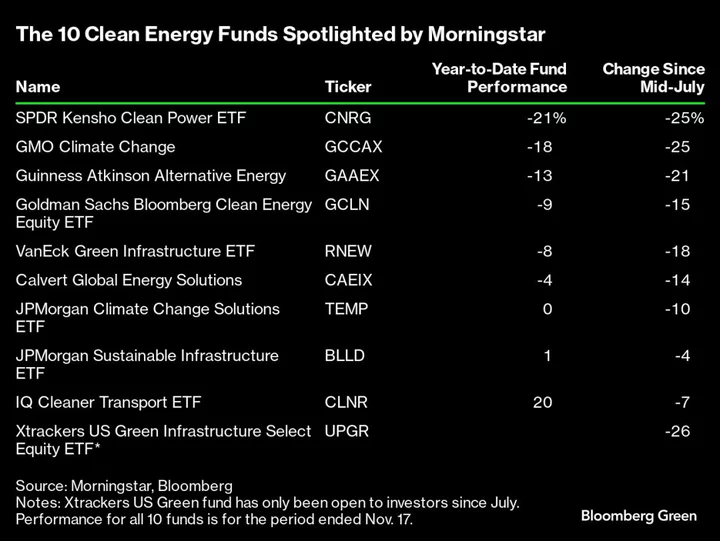
Climate Funds Look to Regain Footing After Three Down Years
Clean energy funds are in the dirt. They’ve slumped roughly 30% this year after losing almost 5% of
2023-11-22 19:52
